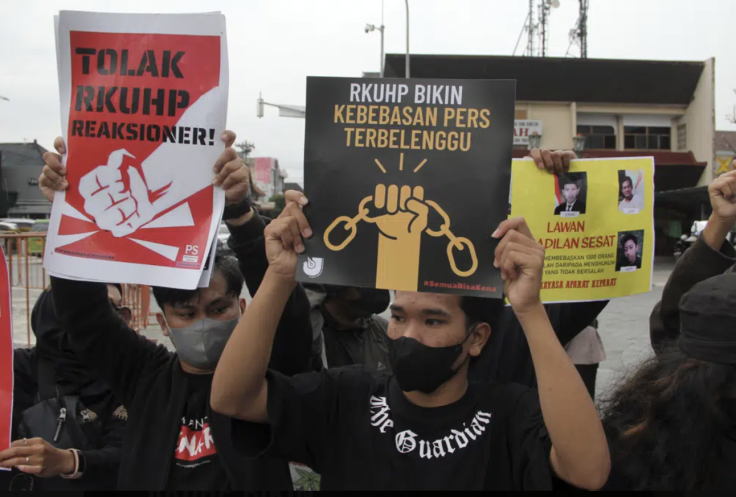Indonesia's Criminalization Of Sex Outside Of Marriage Creates Human Rights Crisis
Indonesia is now facing a human rights crisis after passing controversial amendments to its criminal code earlier this month, specifically criminalizing sex outside marriage.
According to CNN, concerns about tourism have increased due to the new law, a country that welcomes nearly 15 million international visitors annually.
The new code criminalizes cohabitation between unmarried couples and promoting contraception for minors. It also implements new anti-abortion laws that say it is only legal to terminate a pregnancy in cases of rape and medical emergencies when the fetus is less than 12 weeks old.

The law also severely limits Indonesians' right to protest and criminalizes insulting the president or state ideology. The maximum jail time is three years for anyone who "attacks the dignity" of the president or vice president.
"Indonesia's new criminal code contains oppressive and vague provisions that open the door to invasions of privacy and selective enforcement, which will enable police to extort bribes, lawmakers to harass political opponents, and officials to jail ordinary bloggers," said Andreas Harsono, the senior Indonesia researcher at Human Rights Watch.
"In one fell swoop, Indonesia's human rights situation has taken a drastic turn for the worse, with potentially millions of people in Indonesia subject to criminal prosecution under this deeply flawed law."
According to the Indonesian publication Kompas, the ban on premarital sex follows its existing prohibition on adultery. Under the bill, sex outside marriage is punishable by up to one year in prison, and couples living together out of wedlock can face six months in jail.
The publication also noted that human rights groups have said that new amendments restricting individual freedom highlight a growing shift towards fundamentalism in Indonesia. "This has been 59 years in waiting," Edward Omar Sharif, Deputy Minister for Law and Human Rights, said.
© Copyright IBTimes 2024. All rights reserved.





















